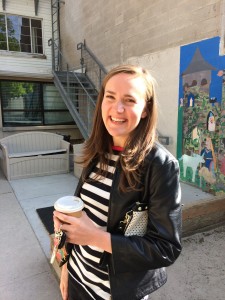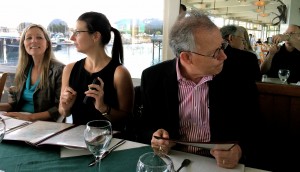I am pleased to be invited to speak in Madrid as part of a Promises event on addiction. At the speaking event, I hope to bring a sense of the importance of proactive awareness to international community of the potency and regularity of illicit drug use, that others call ‘recreational’. So many of our young and older people die from ‘recreational’ drug use, while we turn away. Yesterday, we went with friends to see A Most Wanted Man with Philip Seymour Hoffman. Addiction knows no age limits or socioeconomic boundaries. We, as parents and community members have a responsibility to look to others who can lead and educated us on the ways to find sobriety and safety in fellowship. I hope you can join us in Madrid this coming November.
Category Archives: Blog
A Chartered Psychologist Call for International Reciprocity
 A week of conference meetings in Birmingham UK with British Psychological Society (BPS), and to finalize my inauguration as a UK Chartered Psychologist is based on one premise: the future of my work will be through a collaborative international practice in providing support to families across continents. APA and BPS, it’s time to set up a method of reciprocity beyond a simple memorandum.
A week of conference meetings in Birmingham UK with British Psychological Society (BPS), and to finalize my inauguration as a UK Chartered Psychologist is based on one premise: the future of my work will be through a collaborative international practice in providing support to families across continents. APA and BPS, it’s time to set up a method of reciprocity beyond a simple memorandum.
Let’s face it: The world has changed. They come with diverse, multicultural needs. Many of us work globally with individuals living in more than one country, and more than one family. Families move, and continuing treatment is crucial. Psychology knows it can no longer treat ‘health’ by putting one peg into one hole; it now is faced with multiple pegs in multiple holes. We multi-task to incorporate multiple time zones.
If we believe in ‘health’ to global families then we should do more than providing it better through a world wide distribution through professional association. The world is shrinking, while shrinks’ activities are increasing in fashion and form. It’s time for psychologists to visibly participate in the global economy of health welfare, and to start talking to professional organizations like APA, BPS, and EFPA about global reciprocity. Perhaps, in this way we as psychologists can serve the global citizens of the new world.
Dr Burdick, Chartered Psychologist plans to speak as part of a panel discussion on the subject of international cooperative reciprocity between APA, BPS, and EFPA next May in Liverpool, UK.
Aftermath: Isla Vista
 It is unlikely that anything immediate, albeit grief can come from the tragedy at Isla Vista. I saw this type of problem coming decades ago when I published my dissertation, “What Makes Teens Tick? A Hybrid Health Belief Model to Understanding Adolescent Help-Seeking Behavior”. The core of my dissertation was to construct an instrument that public and private educators could use across the student body to recognize the mental health needs of their student population and to better serve those needs through building school-based response services.
It is unlikely that anything immediate, albeit grief can come from the tragedy at Isla Vista. I saw this type of problem coming decades ago when I published my dissertation, “What Makes Teens Tick? A Hybrid Health Belief Model to Understanding Adolescent Help-Seeking Behavior”. The core of my dissertation was to construct an instrument that public and private educators could use across the student body to recognize the mental health needs of their student population and to better serve those needs through building school-based response services.
Today, I stand by the need for such a ‘survey’ based administration to students across school campuses. No one will likely outlaw firearms in America, and access to them; however, we can legislate schools to administer screenings to help encourage youth to utilize existing mental health services within the school districts and campuses while we encourage schools to build better, stronger infrastructure with less barriers access to mental health services.
The Chambers Brothers called for change years ago in a song simply, called “The Time Has Come Today”. John Lennon in singing “Revolution” called for practical reform. I am asking that you support the idea of responsible education, and recognize there are many of us who do care about individual rights while encouraging individuals to get treatment. Take action. Contact your legislatures, your school districts and school boards to get involved. Call to have your youth assessed today to see what services they need to mature, flourish, and take control of their life.
A Beacon of Hope…..
Few residential recovery centers blend so well into the neighborhood landscape. One notices the elementary school on the other side of the road from Beacon House. Downtown is only a stone’s throw, and Beacon House is historic –over 100 years, to be exact. The staff is stellar and stoic: Everyone in the community knows Beacon House, a non-profit recovery program for adults eighteen and older. The board members are lawyers, therapists, psychologists, and business members with decades of community ‘buy in’. So what does that matter?
A Staff with a heart, and a whole lot of knowledge. For decades I have referred attorneys, court judges, and therapists to look at Beacon House as a option for alternative placement, diversion programs and good solid therapeutic and recovery programming. From a strong 12 Step foundation of integrity, the program incorporates adjunct forms of therapy (e.g., addictionology, neurofeedback, equine, recreation like golf and birding). Next, outpatient services and local apartment residential options for available for continuing care. Would I recommend Beacon House? Yes, and I have for any number of clients. Let’s see if it’s right for your family member. Let’s talk about ‘next steps’ to fight addiction together.
“Fit” in therapeutic placement is what it’s all about
 In spending time today with a young adolescent man and a young woman at Oakley School over lunch it became apparent that who they came into contact during treatment in wilderness and boarding school made all the difference in their minds as to the quality of care. The pieces of the treatment plan may not be immediately recalled, but the staff that made “the difference” did, and in a monumental way. That is what the internet cannot communicate to the family is the quality of the staff member in the program that “makes the difference”.
In spending time today with a young adolescent man and a young woman at Oakley School over lunch it became apparent that who they came into contact during treatment in wilderness and boarding school made all the difference in their minds as to the quality of care. The pieces of the treatment plan may not be immediately recalled, but the staff that made “the difference” did, and in a monumental way. That is what the internet cannot communicate to the family is the quality of the staff member in the program that “makes the difference”.
 Likewise in meeting with a client at Odyssey House, it made sense why he made so much progress within a 6 month period of time, despite the amount of trauma he experienced before coming to treatment. Clearly, he made “a connection” with a particular staff member who “made sense” of his world for him and “changed” his mind, substituting the thought stoppers for rationale thoughts. Albert Ellis immediately came to my mind, and one of his quotes: ““The best years of your life are the ones in which you decide your problems are your own. You do not blame them on your mother, the ecology, or the president. You realize that you control your own destiny.” It’s time to take control of your life, and not blame others, isn’t it? www.drburdick.com
Likewise in meeting with a client at Odyssey House, it made sense why he made so much progress within a 6 month period of time, despite the amount of trauma he experienced before coming to treatment. Clearly, he made “a connection” with a particular staff member who “made sense” of his world for him and “changed” his mind, substituting the thought stoppers for rationale thoughts. Albert Ellis immediately came to my mind, and one of his quotes: ““The best years of your life are the ones in which you decide your problems are your own. You do not blame them on your mother, the ecology, or the president. You realize that you control your own destiny.” It’s time to take control of your life, and not blame others, isn’t it? www.drburdick.com



